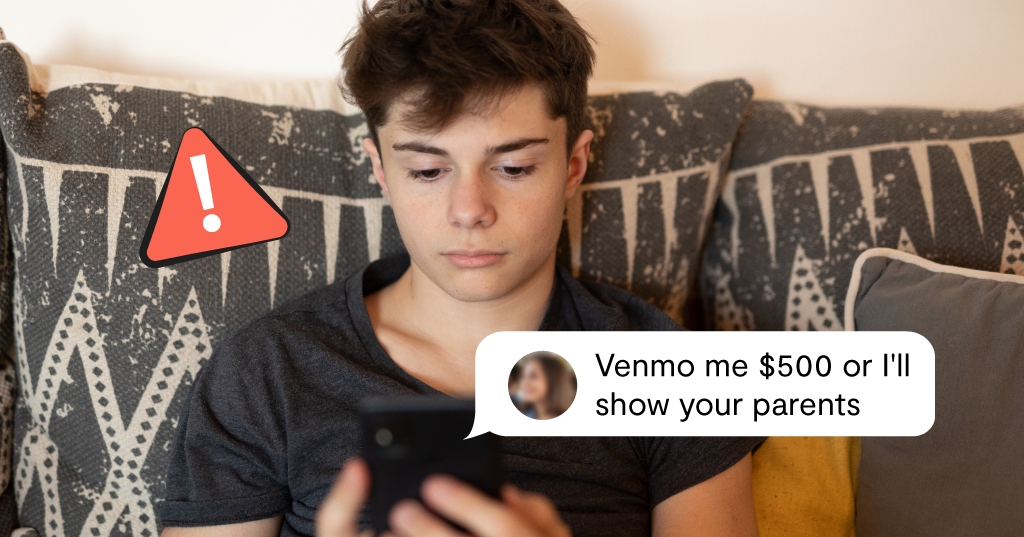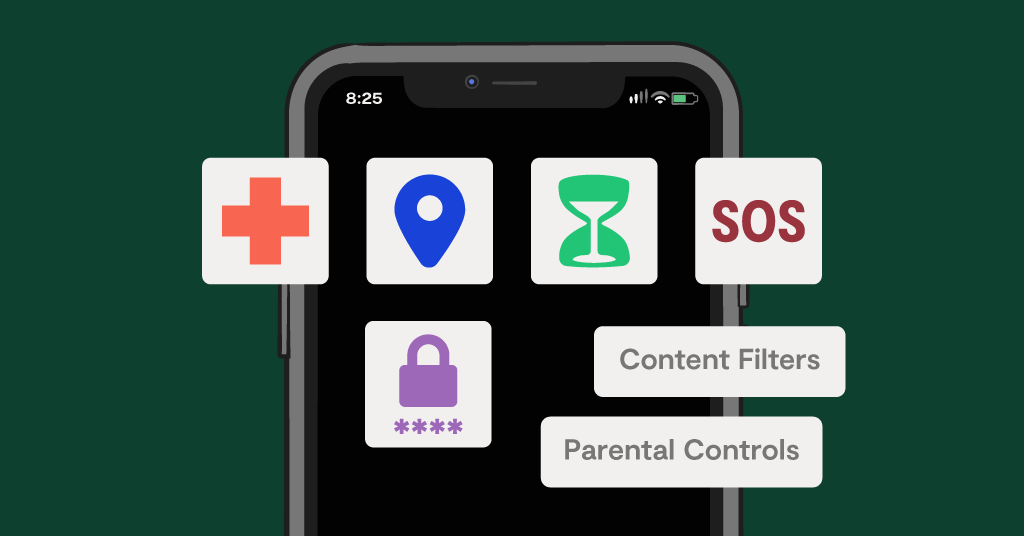If you're familiar with sextortion, you're probably aware of the emotional and psychological impact it can have on families, leaving lasting effects on a young person’s well-being. What’s even more disturbing is that scammers have made a racket out of sextortion scams by targeting young people who may not understand exactly what’s happening or who they’re actually talking to online.
In this blog post, we’ll explain these scams and walk you through what to do if it happens, along with how to support your child, what to save, and how to report it to the relevant authorities.
Sextortion: A Quick Definition
Sextortion is a combination of the words “sex” and “extortion.” Extortion is using threats or force to coerce someone into doing something. In the case of sextortion, a person is threatened that their nude videos or photos will be released unless they:
- Provide valuables or money
- Release more sexual photos or videos
- Perform sexual acts
- Other acts that are against one’s will
Individuals can feel immense shame in cases of sextortion, afraid that their family will see the photos and judge them.
How Do Sextortion Scams Work?
Sextortion can happen between two people who are acquainted (as in the case of a relationship) or through a scam (someone pretends to be someone else in order to solicit photos).
These scams are becoming more and more prevalent and are increasingly targeting young men. The offending party will pretend to be a girl around their age and then will encourage the young man to begin sending nude photos/videos. Once he does, the scammer will demand payment on pain of releasing the photos/videos to his family and community.
Tragically, some of these cases have resulted in boys dying by suicide from the shame, fear, and guilt surrounding the issue.
First, Comfort Your Child
Teens make mistakes! Remember that with sextortion, they’re still the victim of a serious crime. No matter what happened, your child was being manipulated and taken advantage of — full stop. Tell your kid that you’re proud of them for being brave enough to come to you and tell you the truth. This way, you can help protect them.
They’re likely going to be very upset and experiencing a range of emotions, from sadness and guilt to shame and embarrassment. As a parent, your unconditional support is invaluable during this challenging time. Together, you can take proactive steps towards addressing the situation, seeking help, and ensuring that your child feels supported and protected throughout the recovery process.
Save Everything
First, know that this may be a challenging first step, because your first instinct as a parent would be to delete these explicit images to protect your child. But keeping a record of everything that was communicated, you’ll have more to provide to law enforcement so they can potentially find these bad actors. In some cases, screenshots will be fine. But in the case of Snapchat, which alerts the other party to screen shots, it’s better to take a photo of the screen with another device.
Proactive Steps for Reporting
The next few sections are different ways that you can report the sextortion scam to authorities, non-profits, NGOs, and tech companies. Depending on the organization, you can help provide information that can lead to arrests as well as get support in taking down any images that have been posted online without consent.
Contact the Internet Crime Complaint Center
The Internet Crime Complaint Center (IC3), operated by the FBI, specializes in handling internet-related crime complaints, including sextortion. By contacting IC3, you can report the incident and provide them with the evidence you've collected. This step is super important as it connects you with law enforcement professionals who can investigate the case further.
Report It to the FBI
In addition to filing a complaint with IC3, consider directly reporting the incident to the Federal Bureau of Investigation. They have specialized units dedicated to investigating sextortion cybercrimes. Your report can contribute to a broader effort to combat online predators and help protect other potential victims.
Make a CyberTip Report
CyberTip reports can be submitted through the National Center for Missing & Exploited Children (NCMEC). This organization works to combat child exploitation instances ranging from sextortion to sex trafficking. By making a CyberTip report, you're providing valuable information that can assist in identifying and stopping perpetrators.
Get Started with Take It Down
Take It Down uses technology to help remove online nude, partially nude, or sexually explicit photos and videos taken before a person was 18. To begin the process, however, you must still have the image or video on your device. Take It Down also goes beyond mere removal, offering guidance and support to help families navigate the complexities of dealing with online exploitation.
How Bark Can Help
Being proactive about your child’s online safety is one of the important things you can do to help protect them. Bark scans online activities — including the texts and photos they send along with social media posting and commenting — for possible signs of sextortion along with other serious issues like suicidal ideation and bullying.
If we find something concerning, you’ll get an alert so you can check in and make sure everything’s okay. In many cases of sextortion, parents probably had no clue their child was sexting at all, let alone with someone aggressive who is threatening them. Bark sends alerts whenever it detects a saved explicit image, as well as when one is sent or received, keeping you in the know when it comes to what’s happening in your child’s digital world.
Read more
Bark helps families manage and protect their children’s digital lives.






